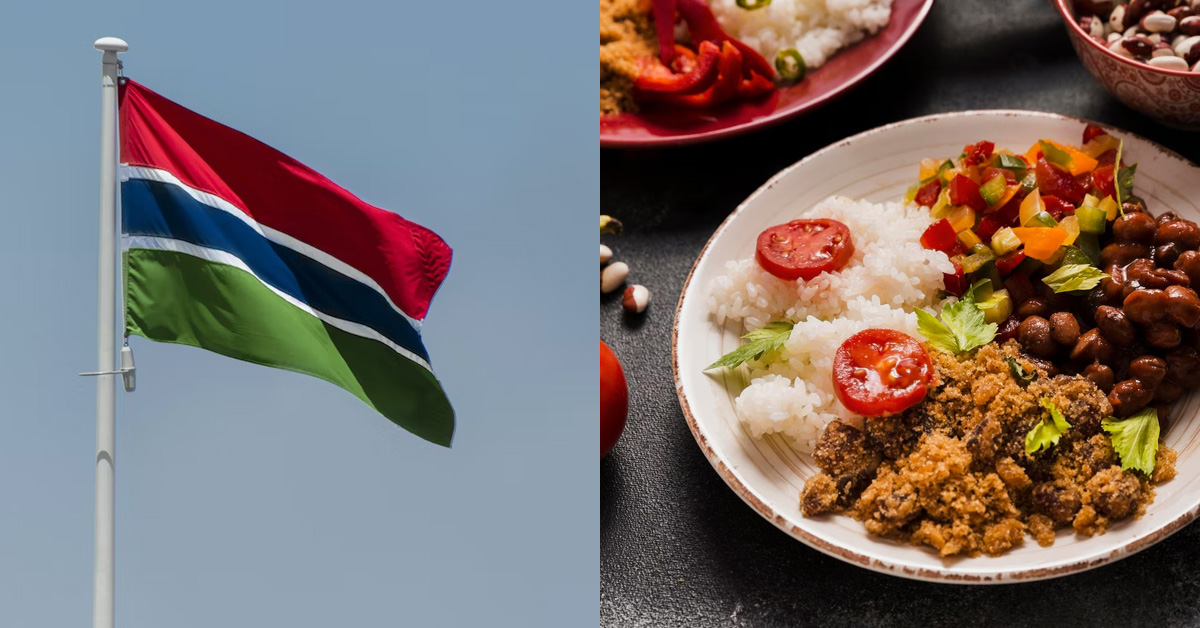Gambian cuisine is a reflection of the country’s rich cultural heritage and diverse influences. Located in West Africa, The Gambia is a small country that is surrounded by Senegal on three sides and the Atlantic Ocean on the other.
The country’s cuisine is a blend of African, European, and Middle Eastern flavors, with a focus on fresh ingredients and bold spices. Gambian food is known for its hearty stews, grilled meats, and flavorful rice dishes. The cuisine is also heavily influenced by the country’s Muslim population, with many dishes featuring halal meat and a variety of vegetarian options.
Gambian cuisine halal or not?
Is Gambian food halal?
Yes, Gambian food is predominantly halal as the majority of the population is Muslim and follows halal dietary laws. However, it is always recommended to confirm the halal status of the food before consuming it.
What kind of food do Gambian eat?
The Gambian cuisine is diverse and influenced by various ethnic groups. Some popular dishes include:
- Benachin (Jollof Rice): A one-pot dish made with rice, vegetables, and meat or fish.
- Domoda: A peanut stew made with meat or fish, vegetables, and peanut butter.
- Yassa: A dish made with marinated chicken or fish, onions, and lemon juice.
- Plasas: A stew made with cassava leaves, meat or fish, and vegetables.
- Tapalapa: A type of bread made with wheat flour and served with various dishes.
- Mbahal: A dish made with smoked fish, okra, and tomato sauce.
- Superkanja: A soup made with okra, fish, and vegetables.
- Bissap: A drink made with hibiscus flowers, sugar, and water.
- Wonjo: A drink made with sorrel flowers, sugar, and water.
- Ataya: A strong tea served with mint and sugar.
How can you tell if the food is halal in The Gambia?
n The Gambia, halal food is widely available, and most restaurants and food establishments that serve halal food will display a halal certification or logo. You can also ask the staff if the food is halal or look for menus that indicate which dishes are halal.
You can also look for restaurants that are owned and operated by Muslims, as they are more likely to serve halal food.
Is it hard to find halal food in The Gambia?
It is not hard to find halal food in The Gambia. The majority of the population in The Gambia is Muslim, and halal food is widely available in restaurants and markets.
However, it is always advisable to confirm the halal status of the food before consuming it.
Is Gambian food healthy?
Gambian cuisine is generally considered healthy as it is based on fresh and locally sourced ingredients such as vegetables, fruits, fish, and lean meats. Gambian dishes are often prepared with minimal oil and spices, making them low in fat and calories.
However, some traditional dishes may be high in carbohydrates and sodium, so it is important to consume them in moderation. Gambian food can be a healthy and nutritious choice when prepared with fresh ingredients and balanced with a variety of food groups.
What is Gambian food similar to?
Gambian food is similar to other West African cuisines, such as Senegalese, Nigerian, and Ghanaian food. It often includes stews, rice dishes, grilled meats, and seafood.
Some popular Gambian dishes include benachin (a one-pot rice dish), domoda (a peanut stew), and yassa (a marinated grilled chicken or fish dish).
Steps to find halal food in the Gambia
Here are some tips to find halal food in the Gambia:
- Look for halal certification: Check for halal certification on food products or restaurants.
- Ask locals: Ask locals for recommendations on halal restaurants or food stores. They may be able to provide valuable information on where to find halal food.
- Check online: Use online resources such as HalalTrip or Zabihah to find halal restaurants and food stores in The Gambia.
- Visit Muslim areas: Visit Muslim areas such as Serrekunda or Banjul, where there are more halal food options available.
- Check menus: Check menus for halal options or ask the restaurant staff if they have halal options available.
- Avoid non-halal ingredients: Be aware of non-halal ingredients such as pork or alcohol, and avoid them when ordering food.
- Bring your own food: If you are unable to find halal food, consider bringing your own food or snacks to ensure you have halal options available.

